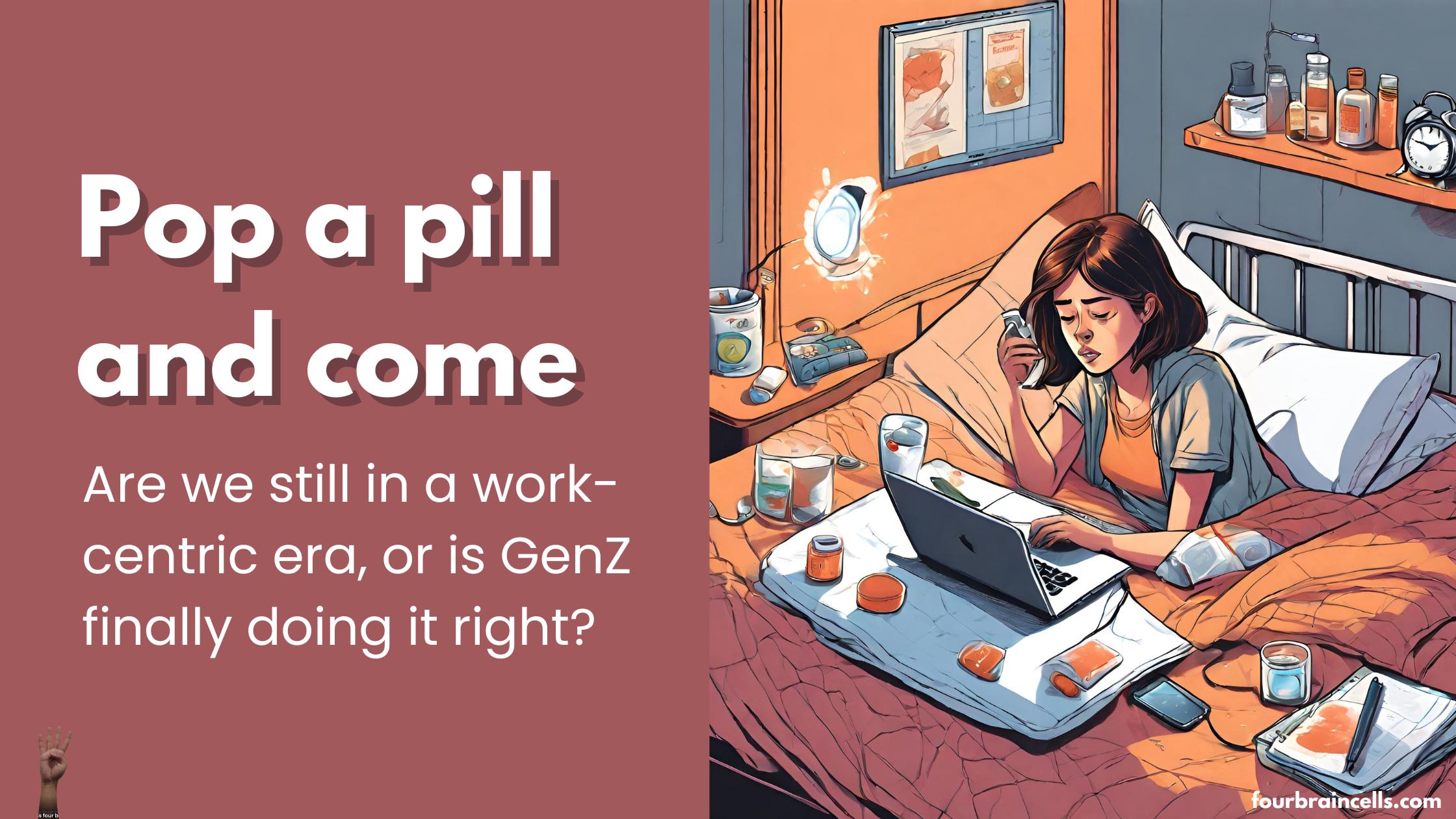During the final year of my dental college, I was desperate for holidays.
There were always things to do, be it personally or professionally, and it got extremely overwhelming after a point of time.
One fine day, I did it. I took a holiday.
And here’s what my teacher told me the next day, “Aysha, next time, just pop a pill and come.”
What she meant by that was that no matter what life throws your way, you have to show up every single day. This is a hospital, not your playground.
While I do understand the sentiment, it’s not just healthcare that works with this ideology. Anywhere in this high-stakes world propels you to show up no matter what, because we’ve been taught that’s the only way to succeed in life.
This sentiment was propounded recently when Infosys co-founder Narayan Murthy made his 70-hour work week comment, expecting all youngsters to dedicate 70 hours per week at work to help our country grow.
Had he said this 40 years ago, he’d be a hero.
Today, we’re wired differently.
We’re all aware that productivity isn’t linked to the number of hours clocked in, and there’s a paradigm shift in our understanding of work-life balance (at least, for the privileged lot of us) and what we want in life.
While mental health and personal life often take a backseat for our parents, GenZ builds on the idea of prioritizing quality time and getting what we deserve- not just the bare minimum. We do what we’re paid for, and I’m sure this gets on the nerves of many capitalists employers.
But here’s the thing: we’ve allowed the work-worship culture to consume our lives entirely. Think about it: what’s your first question when meeting someone new?
- Why is it that our work or profession becomes our entire personality?
- Why do we emphasize work to a point where we forget the reason we started working in the first place?
- Why do we sustain a culture where illness or quality leisure time is less important than work?
The answer is more nuanced than a simple blog post. Over the last 2 years, I’ve had the privilege to say no to multiple work opportunities simply because they won’t align with what I want from life. I wonder, sometimes, if I’m making a mistake by prioritizing avoiding burnout at this stage. Yes, there’s relatively less money as a consequence, but I earn it all at what cost?
You gotta do what you gotta do
Generic excuses for not getting work done aren’t acceptable in the professional world. Most days, we need to buckle up and get shit done-GenZ or not. But amidst all of this, the need to be well-compensated and not take things too seriously is a rather us trait. Fortunately or not, we’re all dispensable.
But in the day-to-day ruckus, why keep putting in effort when we can just enjoy things now?
Well, The Stanford Marshmallow Experiment claims that practicing delayed gratification (the ability to control your impulses for smaller rewards now in exchange for larger rewards later) might help us.
In the 1960s, Stanford professor Walter Mischel did a 40-year follow-up study on many kids.
Each kid was sent to a room, and a marshmallow was kept on the table.
The researcher would then tell the kid, “If you wait for 15 minutes while I’m gone, you’ll get another marshmallow. If you eat this one before I come back, you won’t get another one.”
Researchers then observed the kids. Some ate the marshmallow as soon as they left, some waited, and some tried to wait but couldn’t resist.
Follow-up studies showed that the kids who resisted eating the marshmallow instantly (and practiced what we call delayed gratification) did much better in life when they turned older.
They had higher social and cognitive competence, better grades, were better at coping with stress and frustration and ticked the entire checklist of an average brown parent.
But here’s the catch- those kids knew they were getting the second marshmallow, and just had to wait for the assured result.
We don’t.
Sometimes, we can give it our all every day for years on end and still lose. But as James Clear mentions, “Success usually comes down to choosing the pain of discipline over the ease of distraction. And that’s exactly what delayed gratification is all about.”
There’s also the question of seeking ‘balance’, where if I seek balance in life I might not be able to achieve it all. But that’s okay. We get to choose our definition of success, and if that’s a lazy evening with my parents, a cup of coffee, and a basic 9-5 job, so be it.
And thus, dear reader, I leave you with these thoughts, while I figure out how to balance my urge to “YOLO” and “let’s save up for tomorrow” in my life.
Maybe if I have to keep this blog running, I will have to pop a pill and write.

Leave a Reply